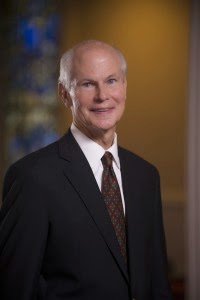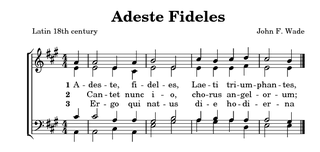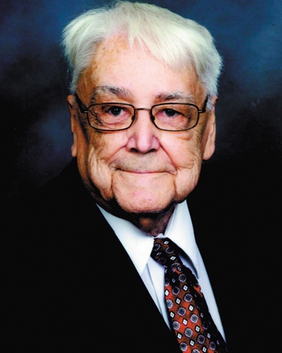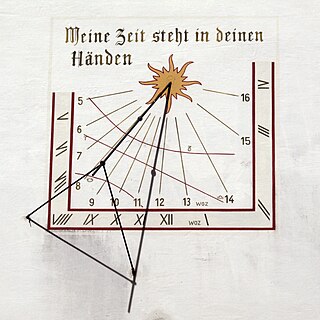
William Byrd was an English composer of late Renaissance music. Considered among the greatest composers of the Renaissance, he had a profound influence on composers both from his native England and on the continent. He is often coupled with John Dunstaple and Henry Purcell as England's most important early music composers.

"A Mighty Fortress Is Our God" is one of the best known hymns by the Protestant Reformer Martin Luther, a prolific hymnwriter. Luther wrote the words and composed the hymn tune between 1527 and 1529. It has been translated into English at least seventy times and also into many other languages. The words are mostly original, although the first line paraphrases that of Psalm 46.

John Milford Rutter is an English composer, conductor, editor, arranger, and record producer, mainly of choral music.

David Hurd is a composer, concert organist, choral director and educator.

Anglican church music is music that is written for Christian worship in Anglican religious services, forming part of the liturgy. It mostly consists of pieces written to be sung by a church choir, which may sing a cappella or accompanied by an organ.

W. Benjamin Hutto was an American musician who specialized in writing, producing, and directing choral music. He served as Director of Choral Activities and Director of Performing Arts at St. Albans School for Boys and the National Cathedral School for Girls in Washington D.C. He was also Director of Music and Organist at St. John's Episcopal Church, Lafayette Square.
David Sartor is an American composer and conductor of symphonic, chamber, and choral music. He is on the music faculty of Belmont University, and is the founder and music director of the Parthenon Chamber Orchestra.

The Genevan Psalter, also known as the Huguenot Psalter, is a 1539 metrical psalter in French created under the supervision of John Calvin for liturgical use by the Reformed churches of the city of Geneva in the sixteenth century.
Marty Haugen is an American composer of liturgical music.
Lupus Hellinck was a Flemish composer of the Renaissance. He was a prominent composer of masses, as well as German chorales and motets. Although he was a Roman Catholic all of his life, his music shows evidence of sympathy for the Protestant Reformation, and three of his motets—including a famous setting of In te domine speravi—were probably inspired by the prison writings of the martyred reformer Girolamo Savonarola.

Delta Omicron (ΔΟ) is a co-ed international professional music honors fraternity whose mission is to promote and support excellence in music and musicianship.
Donald Paul Hustad was a recognized leader in evangelical church music for six decades. Although he was an esteemed musician, composer, and teacher, Hustad's richest legacy resides in his informed criticism of evangelical church music and his well-developed philosophy of worship communicated through lectures, articles, and books.

A hymn tune is the melody of a musical composition to which a hymn text is sung. Musically speaking, a hymn is generally understood to have four-part harmony, a fast harmonic rhythm, with or without refrain or chorus.
Dwight Leslie Armstrong was a composer of hymns based upon texts from the Psalms and other books of the Christian Bible. He was the younger brother of Worldwide Church of God (WCG) founder Herbert W. Armstrong, and uncle of American WCG evangelist Garner Ted Armstrong. He was married to Karen Hill Armstrong and was the father of one daughter, Deborah.

Daniel Ernest Forrest Jr. is an American composer, pianist, educator, and music editor.

"The Lord's My Shepherd" is a Christian hymn. It is a metrical psalm commonly attributed to the English Puritan Francis Rous and based on the text of Psalm 23 in the Bible. The hymn first appeared in the Scots Metrical Psalter in 1650 traced to a parish in Aberdeenshire.
Normand Lockwood was an American composer born in New York, New York. He studied composition at the University of Michigan from 1921 to 1924, and then traveled to Rome and studied composition under Ottorino Respighi from 1925 to 1926, and during this time he also had composition lessons with Nadia Boulanger in Paris. He won a Prix de Rome in 1929 that allowed him to continue his work in Rome. He was a National Patron of Delta Omicron, an international professional music fraternity.

Richard Hillert (1923-2010) was a noted Lutheran composer. He was Distinguished Professor of Music Emeritus at Concordia University Chicago, River Forest, Ill. He was best known for his work as a composer and teacher of composition. Among his most frequently performed liturgical works for congregation is Worthy Is Christ, with its antiphon, “This is the Feast of Victory” which was written as an alternate Song of Praise for inclusion in Setting One of the Holy Communion in Lutheran Book of Worship (1978) and Lutheran Worship (1982). "This is the Feast" is now widely published in more than 20 recent worship books of many denominations, most recently in Lutheran Service Book (2006) and Evangelical Lutheran Worship (2006). Other major liturgical works include a setting of Evening Prayer (1984) and a Eucharistic Festival Liturgy (1983), which was first performed at Holy Name Cathedral in Chicago. He wrote liturgical pieces and hymns and served as music editor for Worship Supplement (1969) and Lutheran Book of Worship (1978). His compositions and publications include an array of pieces of liturgical music for congregation, choral motets, hymns and hymn anthems, psalm settings and organ works, concertatos, and cantatas, including settings of The Christmas Story According to Saint Luke and The Passion According to Saint John. He edited eleven volumes of the Concordia Hymn Prelude Series.

Psalm 31 is the 31st psalm of the Book of Psalms, beginning in English in the King James Version: "In thee, O LORD, do I put my trust". In Latin, it is known as "In te Domine speravi". The Book of Psalms is part of the third section of the Hebrew Bible, and a book of the Christian Old Testament. In the slightly different numbering system used in the Greek Septuagint version of the Bible, and in its Latin translation, the Vulgate, this psalm is Psalm 30. The first verse in the Hebrew text indicates that it was composed by David.

Psalm 150 is a psalm setting by César Franck. He wrote the composition, setting Psalm 150 for four-part choir, orchestra and organ, in 1883. It was published in 1896 by Breitkopf & Härtel. Carus-Verlag published an arrangement for choir, strings and organ. The incipit in French is "Halleluiah! Louez le Dieu, caché dans ses saints tabernacles".













